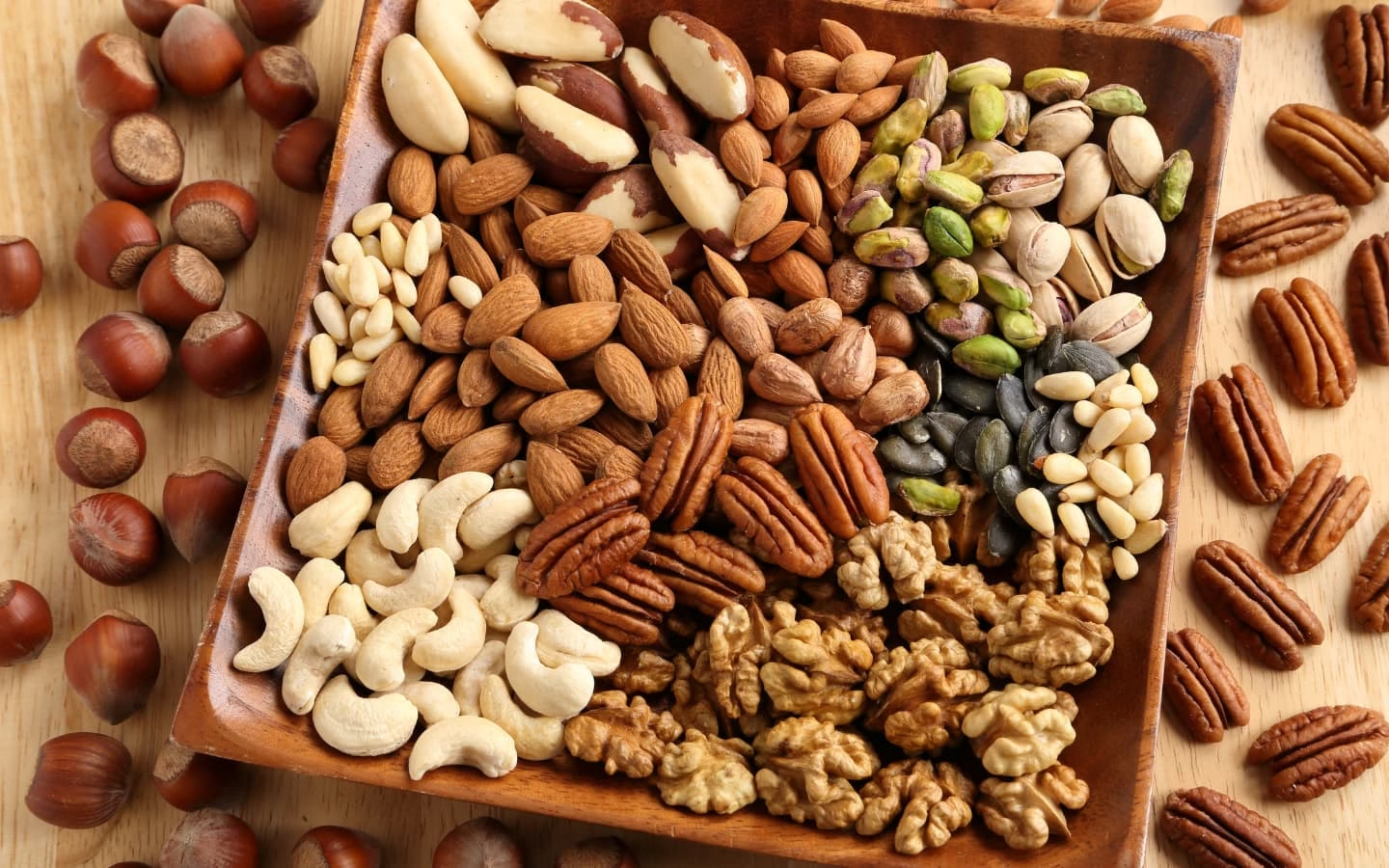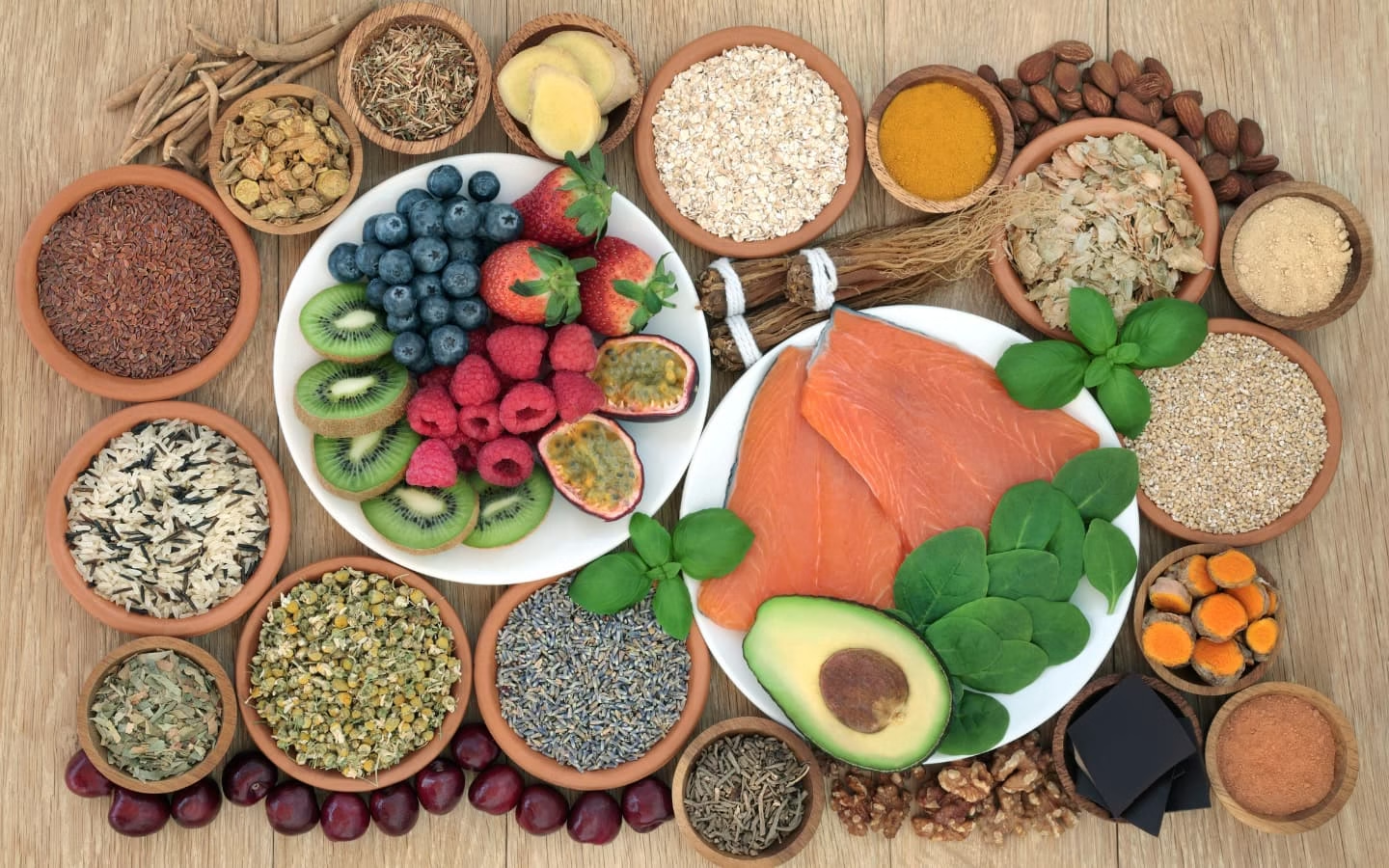Stress affects nearly every aspect of life, from mental clarity to physical health. While lifestyle habits like exercise and mindfulness play a role in reducing stress, nutrition for stress management is often overlooked. The food you consume directly influences your body’s stress response, mood, and overall well-being.
In this guide, we’ll explore how nutrition can help manage stress, the best foods to include in your diet, and simple strategies for better emotional balance.
How Nutrition Impacts Stress Levels
What you eat affects how your body handles stress. Nutrient-rich foods can regulate stress hormones, stabilize mood, and boost overall health. On the other hand, diets high in processed foods and sugar can worsen stress by causing inflammation and blood sugar fluctuations.
Key Nutrients That Impact Stress:
- Magnesium: Helps relax muscles and calm the nervous system.
- Vitamin C: Reduces oxidative stress and supports immunity.
- Omega-3 Fatty Acids: Reduce inflammation and support brain health.
- B Vitamins: Aid in energy production and nervous system support.
By prioritizing these nutrients, you can better manage stress and feel more balanced in your daily life.
Top Stress-Relieving Foods to Add to Your Diet
Incorporating stress-relieving foods can promote emotional balance and support long-term health. Here are some nutrient-rich options to consider:
1. Leafy Greens (Magnesium-Rich Foods)

Leafy greens such as spinach, kale, and Swiss chard are rich in magnesium, a mineral known for its calming properties. Magnesium supports healthy muscle function, reduces tension, and balances stress hormones.
Try This: Add spinach to smoothies or prepare a kale salad with a drizzle of olive oil for added antioxidants.
More on Magnesium: Healthline: Magnesium Benefits for Stress
2. Fatty Fish (Omega-3 Source)

Salmon, mackerel, and sardines are packed with omega-3 fatty acids, which can reduce inflammation and lower stress hormone levels. Omega-3s also play a role in brain health, improving mood stability.
Try This: Grill salmon with a side of steamed vegetables or add sardines to whole-grain toast.
Explore Omega-3 Benefits: Harvard Health: Omega-3 and Brain Health
3. Berries (Rich in Antioxidants)

Berries, including blueberries, strawberries, and raspberries, are loaded with antioxidants and vitamin C, both essential for combating stress-related inflammation.
Try This: Add a handful of berries to your breakfast oatmeal or blend them into a smoothie.
More About Antioxidants: Healthline: Antioxidant Benefits
4. Nuts and Seeds (Mood-Boosting Nutrients)

Almonds, walnuts, and pumpkin seeds are excellent sources of magnesium, healthy fats, and tryptophan, an amino acid linked to serotonin production.
Try This: Snack on a handful of mixed nuts or sprinkle chia seeds over yogurt.
Nutritional Guide on Nuts: Medical News Today: Health Benefits of Nuts
5. Herbal Teas (Natural Relaxants)

Chamomile, peppermint, and green tea are known for their calming properties. Herbal teas can promote relaxation while reducing cortisol levels, the body’s primary stress hormone.
Try This: Brew a cup of chamomile tea before bedtime for a soothing ritual.
Tea Benefits: WebMD: The Health Benefits of Tea
Foods to Avoid for Better Stress Management
While some foods support stress relief, others can make it worse. Limiting these items can help improve your overall well-being:
- Sugary Snacks: They cause blood sugar spikes followed by crashes, leading to mood instability.
- Caffeine Overload: Excess caffeine can trigger anxiety and disrupt sleep.
- Processed Foods: Often high in artificial additives and low in nutrients.
Pro Tip: Replace processed snacks with whole foods like fruit, nuts, and yogurt for sustained energy.
Simple Strategies to Incorporate Stress-Relieving Foods
Making small dietary adjustments can have a big impact on stress management. Here’s how to start:
- Meal Prep: Plan nutrient-rich meals for the week to avoid stress-driven food choices.
- Balance Your Plate: Include protein, healthy fats, and fiber in every meal.
- Stay Hydrated: Drink plenty of water to support overall wellness.
These habits can make a noticeable difference in your stress levels and overall health.
Conclusion: Nourish Your Body to Manage Stress
Incorporating stress-relieving foods into your diet is a powerful way to support both your physical and emotional well-being. By prioritizing nutrition for stress management, you can reduce cortisol levels, stabilize mood, and feel more balanced throughout your day.
Remember: Small, consistent changes can have a lasting impact. Start by adding leafy greens, berries, and nuts to your diet and explore their calming benefits.
For a deeper dive into the connection between diet and stress relief, check out Harvard Health’s Guide on Nutrition and Stress.


1 thought on “Nutrition for Stress Management: Best Foods to Reduce Stress”